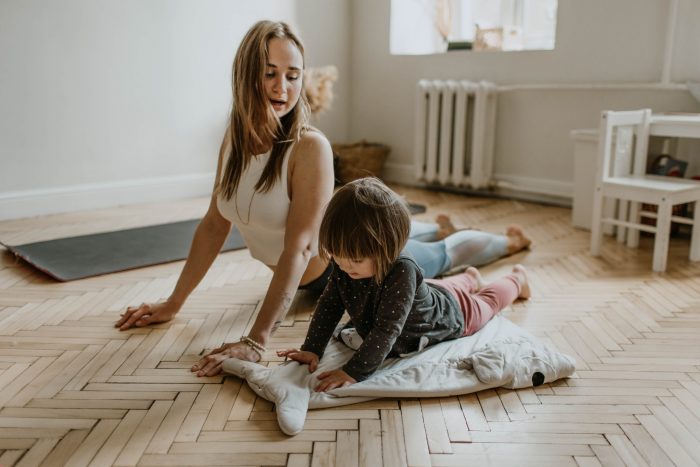Health-conscious parents can look out for the best interests of their children by introducing them to the wonderful world of yoga.
Yoga can help you and your child find quiet time and relaxation together. Whether you’re an experienced or new yogi, the practice is healthy, playful and an invaluable bonding experience.
Yoga teaches participants how to move freely and build awareness of their own bodies. It also teaches practitioners how to quiet their minds and escape from stress and excessive excitement.
The following are 5 ways to make yoga fun for kids.
- Know the Basics Before Trying to Teach Your Kids
You don’t have to be an expert to introduce yoga to your child. Thousands of counselors, teachers and therapists are entranced by yoga – and you can benefit from it too!
A brief yoga demonstration can show you how to synchronize your breath. Tools, such as the breathing sphere – for example, can teach children as early as preschool how to find calm through breathing exercises.
The magic sphere is a great way to show how preschoolers can become responsive to yoga. It also shows that yoga doesn’t have to be fast or silly for kids to take a liking to it.
- Try a Visual Aide
Again, the magic sphere can help you to teach awareness, knowledge and effective yoga techniques to preschoolers. However, you must start your learning adventure with yourself.
According to experts, nervous system regulation is the most important yoga skill for young yogis. You can teach your children nervous system regulation using a practice called “co-regulation.”
- Make It a Habit
Children as young as one to two years old can find stillness and learn to breathe deeply. The Yoga Calm method teaches young children to slowly master yoga breathing techniques and poses.
You should use the same routine each time you are teaching yoga to your children to help them to catch on quickly. Over time, your young one may learn the breathing technique so effectively that they can hear their own breath.
- If Necessary, Embrace the Chaos
While it’s counterintuitive to embrace chaos during yoga, you should recognize that teaching yoga to kids is a different animal than teaching it to full grown adults. To begin with, learning yoga is age-specific for children. Furthermore, children may have developmental issues that you must consider, such as:
- Brief attention spans
- Dietary needs
- Food allergies
- Inability to remain quiet
- The need to relieve themselves regularly
Resultantly, you may need to give your child more attention than what’s required to teach yoga to an adult or older child.
- Don’t Force Them
The best solution here is to let your child observe you practicing yoga, and hopefully your good habit will rub off on them. Teaching yoga to your child can prove extremely tiring. However, it’s also rewarding.
Teaching yoga to your child will undoubtedly tax your patience. Nevertheless, it will also challenge your creativity, and demand your trust, love and self-confidence. Ultimately, it’s fun.
- Have Your Act Together – Kids Know When You’re Faking It!
More than likely, you’ll have your hands full trying to get your child to focus on yoga, so you’ll need to have an idea of what you want to do beforehand. You should know exactly what you’re going to do when trying to teach a child.
For example, you should know your yoga story and poses by heart as well as the rules and the structure of your routine. Imagine your child reacting, and stay prepared to respond to those reactions.
- Adjust Your Session to Your Child
You can participate in yoga classes designed for parents and their children. These kinds of classes invoke kids’ imaginations through activities, songs, games and poems.
By creating an imaginary environment, children are free to pretend that they are animals or some other type of imaginary creature. Don’t worry about whether the routine is fixed. Just go with the flow.
In the United States, anxiety has reached epidemic proportions among youth. For example, over 30% of adolescents meet the criteria for anxiety disorder by the age of 18, according to the Child Mind Institute.
Stress anxiety can persist well beyond. Yoga, however, can provide your children with a life-long benefit.












Read 0 comments and reply